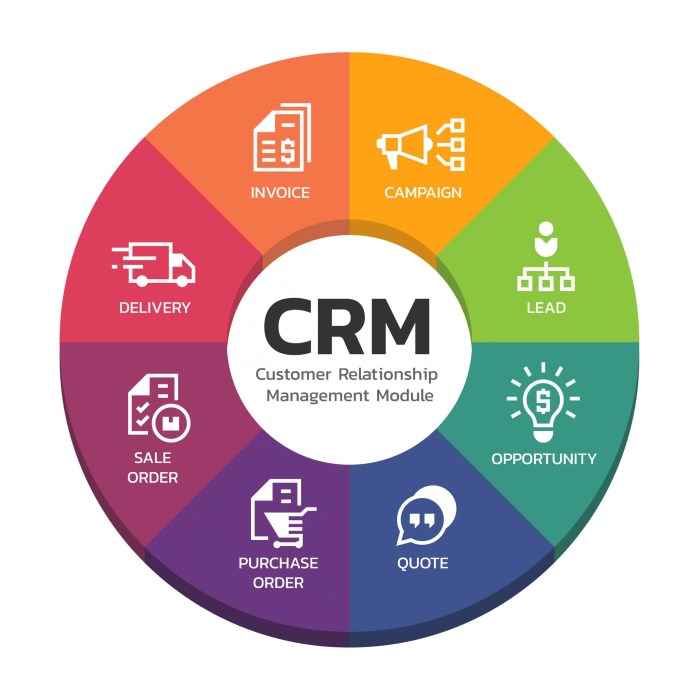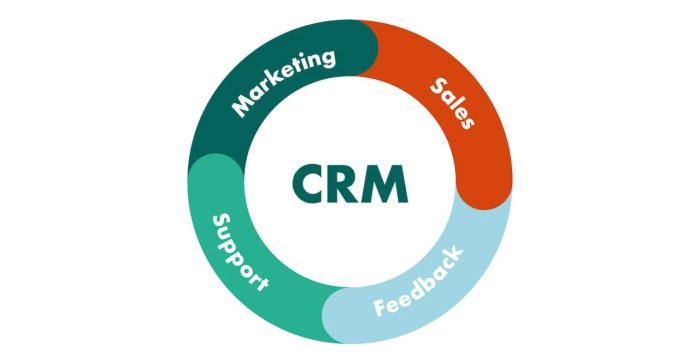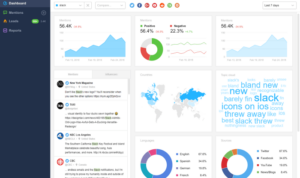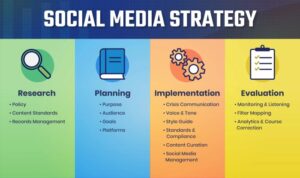Using CRM Tools in Marketing opens the door to a world of endless possibilities, where businesses can revolutionize their strategies and connect with customers on a whole new level. Get ready to dive into the realm of marketing magic!
CRM tools play a crucial role in modern marketing, offering businesses the tools they need to personalize messages, streamline workflows, and boost efficiency. In this fast-paced digital age, mastering CRM tools is the key to staying ahead of the competition.
Introduction to CRM Tools in Marketing

CRM tools, or Customer Relationship Management tools, are software applications used by businesses to manage interactions with current and potential customers. These tools play a crucial role in marketing by helping companies organize customer data, track customer interactions, and streamline marketing campaigns.
The benefits of using CRM tools in marketing strategies are numerous. They allow businesses to personalize communication with customers, target specific customer segments, track customer behavior, and improve customer satisfaction. CRM tools also help businesses analyze customer data to make informed decisions and optimize marketing efforts.
Some popular CRM tools used in marketing include Salesforce, HubSpot, Zoho CRM, and Pipedrive. These tools offer features such as contact management, lead tracking, email marketing, and analytics to help businesses effectively manage their customer relationships and drive marketing success.
Implementing CRM Tools in Marketing Campaigns
CRM tools play a crucial role in modern marketing campaigns by helping businesses better understand their customers and target them effectively. By integrating CRM tools into marketing strategies, companies can personalize their approach, improve customer engagement, and increase sales.
Utilizing Customer Data for Personalized Campaigns
- CRM tools allow businesses to gather and analyze customer data, such as purchase history, preferences, and interactions with the company.
- With this data, companies can create targeted marketing campaigns tailored to individual customer needs and interests.
- Personalized campaigns have been shown to increase customer loyalty and drive higher conversion rates.
Examples of Successful CRM Tool Implementation, Using CRM Tools in Marketing
- Amazon utilizes CRM tools to track customer behavior and recommend products based on past purchases, leading to increased sales and customer satisfaction.
- Salesforce uses CRM tools to manage customer relationships and streamline communication with clients, resulting in improved customer retention and loyalty.
- Starbucks uses CRM tools to analyze customer preferences and offer personalized promotions, driving customer engagement and loyalty.
Importance of Data Management and Analysis
- Effective data management is essential for CRM tools to function properly and provide accurate insights into customer behavior.
- By analyzing customer data, businesses can identify trends, predict future behavior, and make informed decisions about marketing strategies.
- Data analysis helps businesses segment their customer base, target specific demographics, and optimize their marketing efforts for maximum impact.
Personalization and Customer Segmentation: Using CRM Tools In Marketing

Personalization and customer segmentation are crucial aspects of marketing that can be significantly enhanced through the use of CRM tools. Let’s dive into how CRM tools help in personalizing marketing messages and the importance of customer segmentation in marketing using CRM tools.
Personalizing Marketing Messages
Personalizing marketing messages is essential for connecting with customers on a deeper level. CRM tools allow businesses to gather valuable data about their customers, such as their preferences, purchase history, and behavior. This data enables businesses to create tailored marketing messages that resonate with each individual customer. By personalizing messages, businesses can increase engagement, build brand loyalty, and drive conversions.
- CRM tools track customer interactions across various channels, allowing businesses to send targeted messages based on customer behavior.
- Personalized emails with product recommendations or special offers based on past purchases can increase customer engagement and sales.
- Dynamic website content that changes based on customer preferences can enhance the user experience and drive conversions.
Customer Segmentation in Marketing
Customer segmentation involves dividing customers into groups based on similar characteristics or behavior. CRM tools play a crucial role in customer segmentation by providing insights into customer demographics, purchase history, and interactions with the brand. Segmenting customers allows businesses to create targeted marketing campaigns that are more relevant to specific customer groups.
- Segmenting customers based on demographics, such as age, location, or income level, helps businesses tailor their marketing messages to different target audiences.
- Behavioral segmentation, such as grouping customers based on purchase frequency or browsing history, allows businesses to send personalized recommendations and promotions.
- Customer segmentation enables businesses to deliver the right message to the right audience at the right time, increasing the effectiveness of marketing campaigns.
Examples of Personalized Marketing Campaigns
– A clothing retailer using CRM tools to send personalized emails with product recommendations based on customer browsing history, resulting in a 20% increase in sales.
– An e-commerce company segmenting customers by purchase frequency and sending targeted promotions to frequent buyers, leading to a 15% increase in customer retention.
– A travel agency creating personalized vacation packages for different customer segments based on travel preferences, resulting in a 25% increase in booking conversions.
Automation and Workflow Efficiency
Automation through CRM tools revolutionizes marketing tasks by streamlining processes and reducing manual effort. This not only saves time but also ensures consistency and accuracy in executing campaigns.
Impact of Automation on Marketing Efficiency
- Automating email campaigns: CRM tools enable marketers to schedule and send personalized emails based on customer behavior, ensuring timely communication and engagement.
- Lead management automation: By setting up lead scoring and nurturing workflows, CRM tools can help prioritize leads and guide them through the sales funnel efficiently.
- Social media automation: CRM platforms allow scheduling posts, monitoring interactions, and analyzing social media performance, enhancing brand presence and engagement.
- Automated reporting: Generating reports on key metrics and performance indicators becomes effortless with CRM tools, providing insights for data-driven decision-making.





